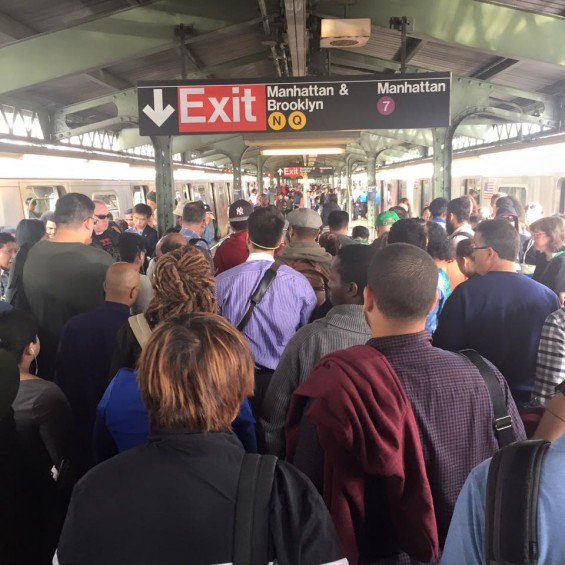
Crowding on the Queensboro Plaza platform (File Photo)
Jan. 14, 2020 By Kristen Torres
Signal problems affected nearly four out of every five weekday morning commutes on city subways last year, according to a new report.
The Riders Alliance released its findings on Monday, revealing 78 percent of morning commutes in 2019 were delayed due to signal issues. That number is down from 2018, when 92 percent of morning commutes were affected.
“Four out of five mornings with signal problems is still pretty bad,” said Riders Alliance Policy & Communications Director Danny Pearlstein. “The governor needs tell us when we can expect meaningful improvements.”
The group looked into signal malfunctions—which determine when a train can move down the tracks—between 6 a.m. and 10 a.m. during 253 non-holiday workdays in 2019. It found that 198 morning rush hour commutes were delayed due to signal malfunctions, keeping riders from work and other appointments, the report said.
The Riders Alliance blamed the nearly century-old transit system for the delays.
“With congestion pricing coming and the MTA Capital Program approved, New Yorkers need to know when signal upgrades will happen on subway lines across the city,” Pearlstein said.
The MTA’s 2020-2040 Capital Plan—which was approved Jan. 1—includes $7.1 billion in signal modernization, which will serve more than 50 percent of passengers across 11 train lines, according to the MTA.
But transit advocates are demanding Governor Andrew Cuomo and MTA officials release a timetable for signal upgrades promised under the plan.
“Governor Cuomo and the MTA have broadly described how they plan to fix the subway, but they need to fill in the details with a timetable for signal improvements and other critical upgrades riders are depending on,” said Colin Wright, a senior associate at TransitCenter, a transit advocacy group.
And although MTA officials have yet to release a timetable for signal improvements, the agency recently announced a $245.8 million contract to upgrade signals on the A, C and E lines along 8th Avenue in Manhattan.
